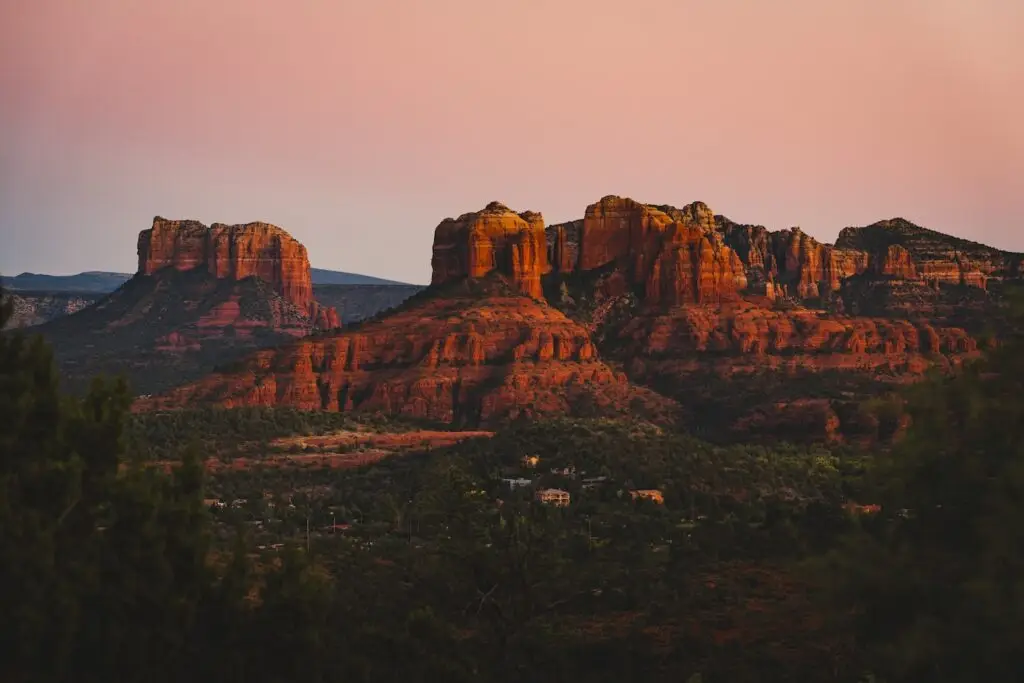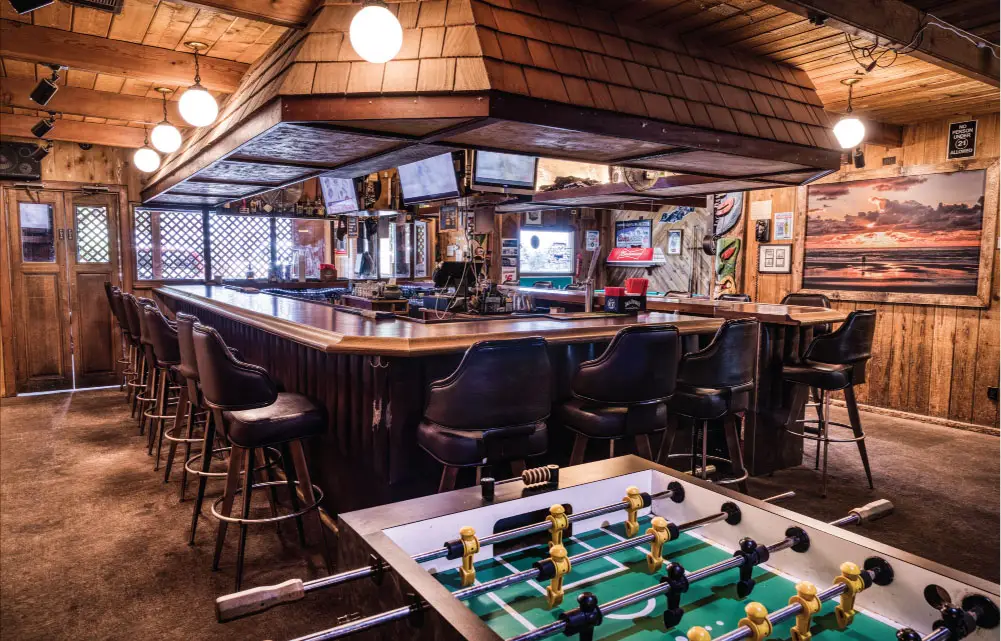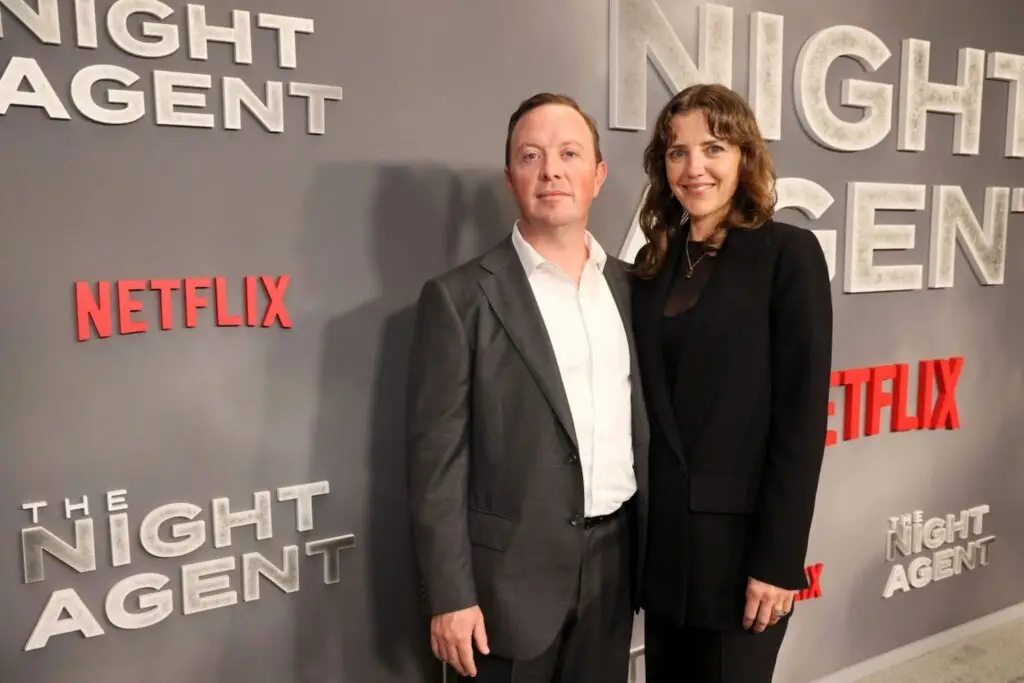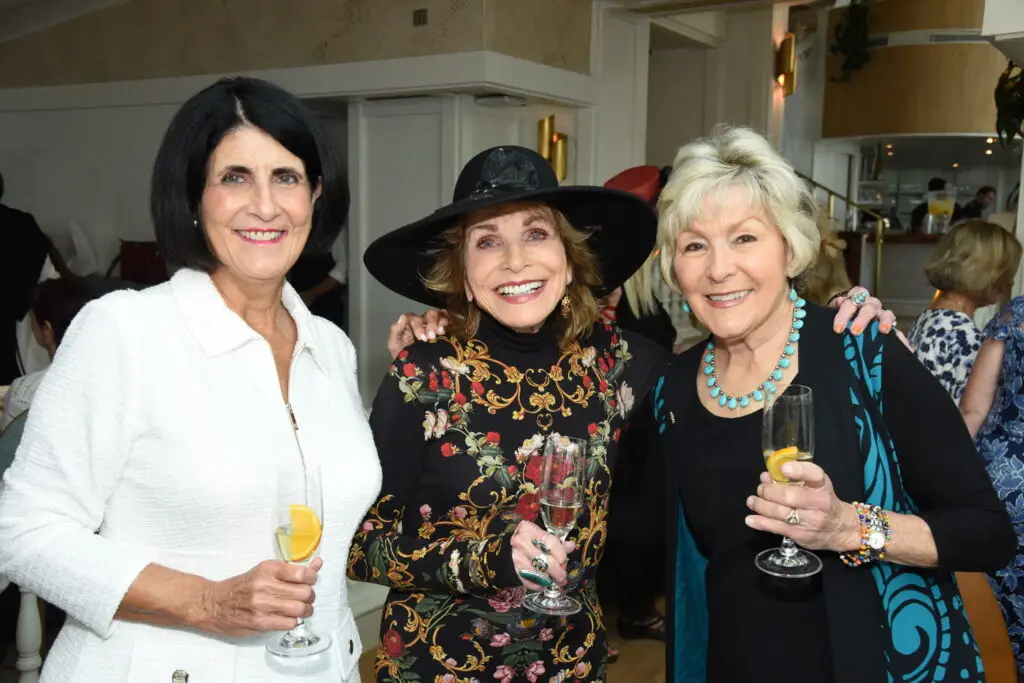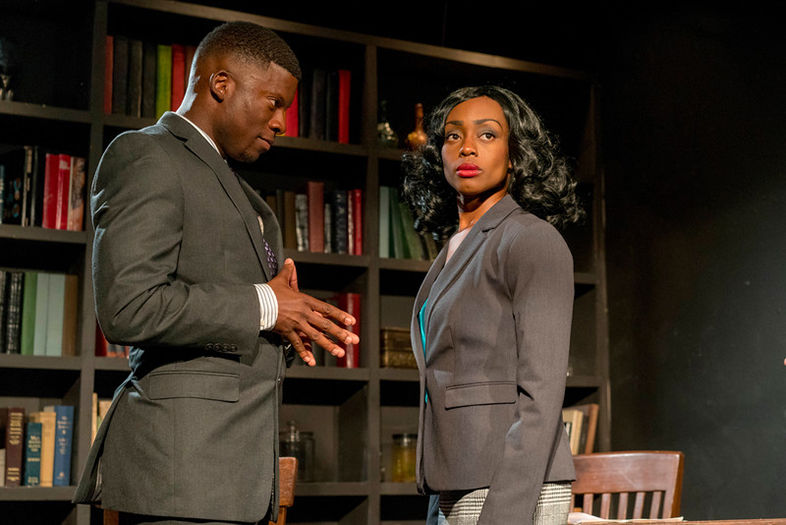History comes to us only through the lenses of historians, inevitably passing through their sociocultural baggage no matter how objective they aim to be. That’s the warning given early on in Voyeurs de Venus, now playing at Moxie Theatre. Sarah Washington (Cashae Monya) is a “pop culture anthropologist” seeking to land a book deal for the real-life story of Saartjie Baartman (Joy Yvonne Jones), an indigenous Southern African woman who, in 1810, was trafficked to Europe and hypersexually marketed as an exhibit of “racial science”—branded “The Hottentot Venus”—to be gawked at and studied by naturalists because of her supposedly extraordinary body.
Washington’s struggle is how to faithfully tell Baartman’s story in a way that honors her life without perpetuating the voyeurism that so attended it. On the one hand, historical tales of black suffering allow contemporary white audiences to both congratulate themselves at how much more enlightened they are now by comparison, while still deriving entertainment from the gruesome details. But on the other, the man who most abused Baartman was the so-called father of paleontology, Georges Cuvier (Justin Lang), who dissected her body after her death and had her skeleton and preserved genitals mounted for display in a museum. Doesn’t that horrifying footnote in the canon of natural history deserve critical examination? But then, how can Washington live with the thought that selling her book would mean profiting from this violent history?
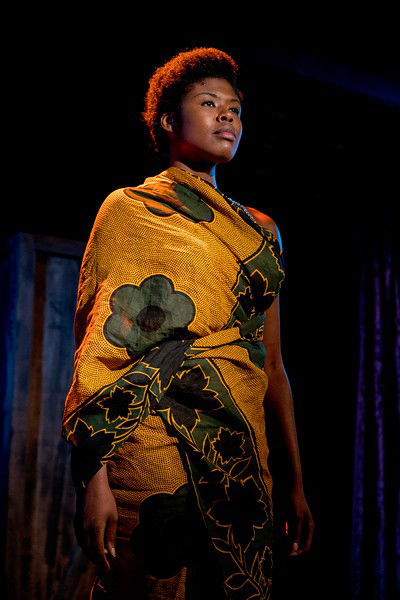
‘Voyeurs de Venus’ is Moxie’s Boldest, Most Thought-Provoking Show Yet
Joy Yvonne Jones | Photo: Daren Scott
This is weighty, fraught material to construct a stage play from. And it might fall apart if it weren’t helmed by playwright Lydia Diamond—she previously adapted Toni Morrison’s The Bluest Eye—and Delicia Turner Sonnenberg, one of the most prolific directors working in San Diego today. They’ve made the gobstopping choice to inject comedy throughout, knowing that the impact of tragedy is dulled without contrast, and that sometimes the only rational response to inhumanity is absurdity. I’m not convinced it works in every case—the tonal whiplash can be disorienting—but I admire the risk taken.
Much of this comedic leavening comes through Washington’s wild dreams, whose symbology is by turns shocking and silly: traditional Khoekhoe dance immediately appropriated by white women wearing bananas, jive performers in blackface masks, a whining Becky, and mad surgeons lit like pulp horror. To what degree these sequences embellish or distract from the play’s throughline is a matter of individual interpretation—some of the laughter at my performance seemed awfully mistimed—but all the better for some meaty postshow discussion.
Thankfully the greater part of the play is spent in the waking world, past and present, where the quirks of Washington’s mind manifest in clearer ways. Characters far removed in time or space will pop into a scene simply because she’s thinking about them, playing loose with the boundary between internal and external dialogue. The play’s most impressive sequence dramatizes a section of her manuscript in progress, read aloud alternately at home by her husband, at the office by her editor, and by Baartman herself in the constructed past. The men critique the writing as they go, causing Baartman to shift into an African accent and dialect which they deem more credible, despite her documented fluency in Dutch, French, and English.
It’s an astounding, heartbreaking demonstration of code-switching from Joy Yvonne Jones, and it recalls a similar dexterity shown by actor Cortez Johnson when he was directed by Sonnenberg at Moxie last year in Blue Door. Here he plays one of Washington’s editors, who follows in the tradition of characters of color who have compromised their identity to rise higher in the white man’s world—or as he puts it, sitting out the small battles so he can fight the big ones. (It’s a testament to the actor’s skill how persuasive he is when he tells Washington that it’s impossible to exploit the dead.) A more sinister shift is asked of actor Justin Lang, who plays both Washington’s gentle white husband in the present day and the dehumanizing Georges Cuvier in the past. The implications that particular casting makes regarding original sin are enough to make your skin crawl. I last saw Cashae Monya in a chirpy supporting role in La Jolla Playhouse’s Miss You Like Hell, and she deserves her spotlight here, deftly juggling between every intellectual quandary, comic beat, and dance step demanded of her.
If you expect an uncomplicated, unchallenging Good Time from your entertainment, there are plenty of places to find it. But if your mind sparkles at big, multidimensional questions that stick with you long after the house lights come up, you’ll find few stories bolder and more engaging than those being told at Moxie.
Moxie Theatreâ
Through September 9
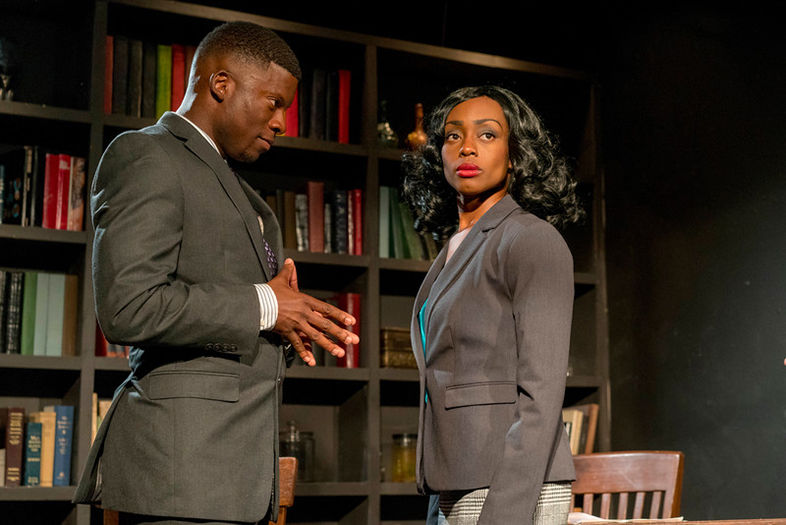
‘Voyeurs de Venus’ is Moxie’s Boldest, Most Thought-Provoking Show Yet
PARTNER CONTENT
Cortez Johnson and Cashae Monya | Photo: Daren Scott







